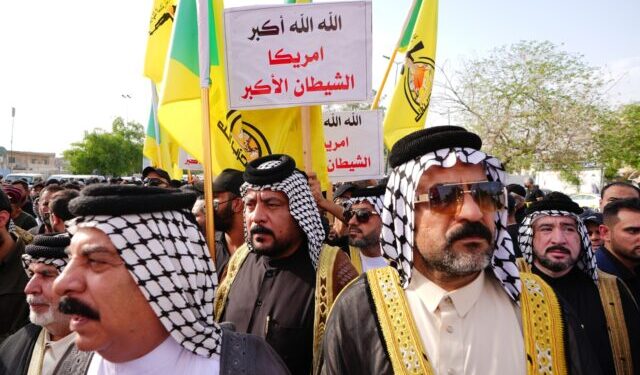BAGHDAD — Top leaders of Iran-backed terror groups in Iraq are reportedly considering disbanding and disarming, following strong warnings from President Trump and the threat of targeted U.S. airstrikes.
According to a Reuters report, commanders from several Shiite militias—Kata’ib Hezbollah, Nujabaa, Kataib Sayyed al-Shuhada, and Ansarullah al-Awfiyaa—are weighing a major strategic retreat. All are part of the so-called Islamic Resistance in Iraq, which launched attacks on American forces in solidarity with Hamas after its October 7 assault on Israel.
“Trump is ready to take the war with us to worse levels… we want to avoid such a bad scenario,” an anonymous Kata’ib Hezbollah commander told Reuters.
Trump’s Pressure Works
President Trump’s return to the White House appears to have shifted the calculus. The Biden administration failed to deter these groups with diplomacy, but Trump’s reputation—after eliminating IRGC Quds Force head Qassem Soleimani in 2020—is prompting action.
U.S. officials have reportedly warned the Iraqi government that unless it reins in these militias, American strikes are on the table. Some militias have already begun vacating headquarters and reducing their presence in cities like Mosul and Anbar.
Iran Steps In to De-Escalate
Even Iran appears to be adjusting its posture. Quds Force chief Esmail Qaani—Soleimani’s successor—traveled to Baghdad in March urging the groups to maintain “discipline” and not provoke the U.S.
Reports suggest Tehran supports a deal that would integrate these terror groups into Iraq’s formal military structure under Prime Minister Mohammed Shia al-Sudani, likely in an attempt to shield them from U.S. retaliation while maintaining long-term influence.
“All PMF brigades and units… will operate under the direct command of Iraqi Prime Minister Mohammed Shia Al-Sudani,” reported Shafaq News.
Militias Eye Political Legitimacy
The terror groups may also pivot to politics. Talks are reportedly underway to allow some of these factions to form legitimate political parties or join Iraq’s armed forces, mimicking recent developments in Syria, where even jihadist factions are being normalized into state structures.




















